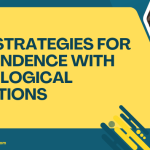Table of Contents
- Introduction
- 1. Sense of Belonging
- 2. Shared Experiences
- 3. Emotional Support
- 4. Coping Strategies
- 5. Accountability
- FAQs
- Conclusion
Introduction
Support groups have become a vital resource for individuals seeking emotional well-being. Whether you’re grappling with mental health challenges, dealing with chronic illness, or navigating life’s hurdles, these groups can provide a nurturing environment. In this article, we will explore the top five benefits of support groups and how they play a pivotal role in enhancing emotional well-being.
1. Sense of Belonging
One of the most profound benefits of joining a support group is the sense of belonging it fosters. In today’s fast-paced world, many people feel isolated and disconnected. Support groups create a community where individuals can relate to one another, share their stories, and feel accepted without judgment.
Belonging is essential for mental health. According to a study published by Psychological Science, feelings of social connection can significantly impact mood and overall well-being. When individuals know they are not alone in their feelings, it can reduce anxiety and foster a sense of security.
Visual Element: Sense of Belonging
| Benefits of Belonging | Impact on Emotional Well-Being |
|---|---|
| Decreased feelings of loneliness | Higher satisfaction with life |
| Enhanced coping mechanisms | Reduced anxiety and depression |
2. Shared Experiences
Support groups are often formed around common experiences, such as grief, addiction, or chronic illness. Sharing these experiences allows members to connect on a deeper level, fostering empathy and understanding.
Storytelling is a therapeutic tool that can promote healing. According to a report by the American Psychological Association, sharing personal experiences can help individuals process their feelings and gain insights into their situations. This shared vulnerability creates a safe space where participants can learn from one another.
Benefits of Shared Experiences
- Validation: Hearing others share similar struggles can validate your feelings.
- New Perspectives: Gaining insights from others can help shift your viewpoint.
- Building Resilience: Learning how others cope can inspire you to adopt new strategies.
3. Emotional Support
Emotional support is at the heart of what makes support groups so valuable. Members can lean on each other during difficult times, providing a shoulder to cry on or a listening ear when needed.
Research has shown that emotional support can lead to better mental health outcomes. A study published in the Journal of Health and Social Behavior found that individuals with strong emotional support networks are less likely to experience depression and anxiety. This is especially crucial in the context of neuro care, where emotional well-being significantly impacts recovery and overall health.
How to Provide Emotional Support
- Active Listening: Sometimes, all someone needs is to feel heard.
- Encouragement: A few kind words can go a long way in uplifting someone’s spirit.
- Empathy: Understanding another’s feelings can create a strong bond.
4. Coping Strategies
Support groups not only provide emotional comfort but also equip members with practical coping strategies. Participants often share tools and techniques that have worked for them, offering a diverse range of solutions to common problems.
Coping strategies are methods used to manage stress and emotional pain. They can include mindfulness practices, journaling, or even physical activities like yoga. These strategies are especially beneficial for those navigating neurological disorders, where managing stress is crucial for maintaining neurological health.
Benefits of Learning Coping Strategies
- Diverse Approaches: Gaining insights from others can introduce you to new methods.
- Skill Development: Practicing coping strategies can improve emotional resilience.
- Encouragement to Try New Things: Being part of a group can motivate individuals to step out of their comfort zones.
5. Accountability
Being part of a support group fosters a sense of accountability among members. When you share your goals or challenges, you create a network of people who can help you stay on track.
Accountability in support groups can manifest in various ways, such as regular check-ins or goal-setting sessions. Knowing that others are aware of your journey can motivate you to remain committed to your personal growth.
Benefits of Accountability
- Motivation: Support from others can encourage you to work toward your goals.
- Progress Tracking: Regular updates can help you see how far you’ve come.
- Reduction of Relapse Risk: For those in recovery, accountability can significantly decrease the likelihood of setbacks.
FAQs
What types of support groups are available?
Support groups can vary widely, from those focused on mental health issues such as depression and anxiety to groups for chronic illnesses, grief, or addiction. Some groups are led by professionals, while others are peer-led.
How do I find a support group?
You can find support groups through community health centers, hospitals, online directories, or local non-profits. Websites like Mental Health America and NAMI (National Alliance on Mental Illness) can provide valuable resources.
Is joining a support group right for me?
If you’re feeling isolated, struggling with emotional challenges, or seeking to share your experiences with others, joining a support group can be a beneficial step. It’s important to find a group that feels comfortable and aligns with your needs.
Conclusion
Support groups play a crucial role in enhancing emotional well-being by fostering a sense of belonging, sharing experiences, providing emotional support, offering coping strategies, and promoting accountability. If you’re considering joining a support group, remember that you’re not alone on this journey. Embrace the opportunity to connect with others who understand your struggles, and take the first step toward emotional healing.
For more information on mental health resources, you can visit Mental Health America or NAMI.
Also Look For
For further insights into the significance of emotional support in neuro care, check out Top 5 Benefits of Early Intervention in Neuro Care. Additionally, explore Top 5 Ways Family Support Enhances Neuro Recovery to understand how familial connections can bolster emotional well-being in the context of neurological disorders.





